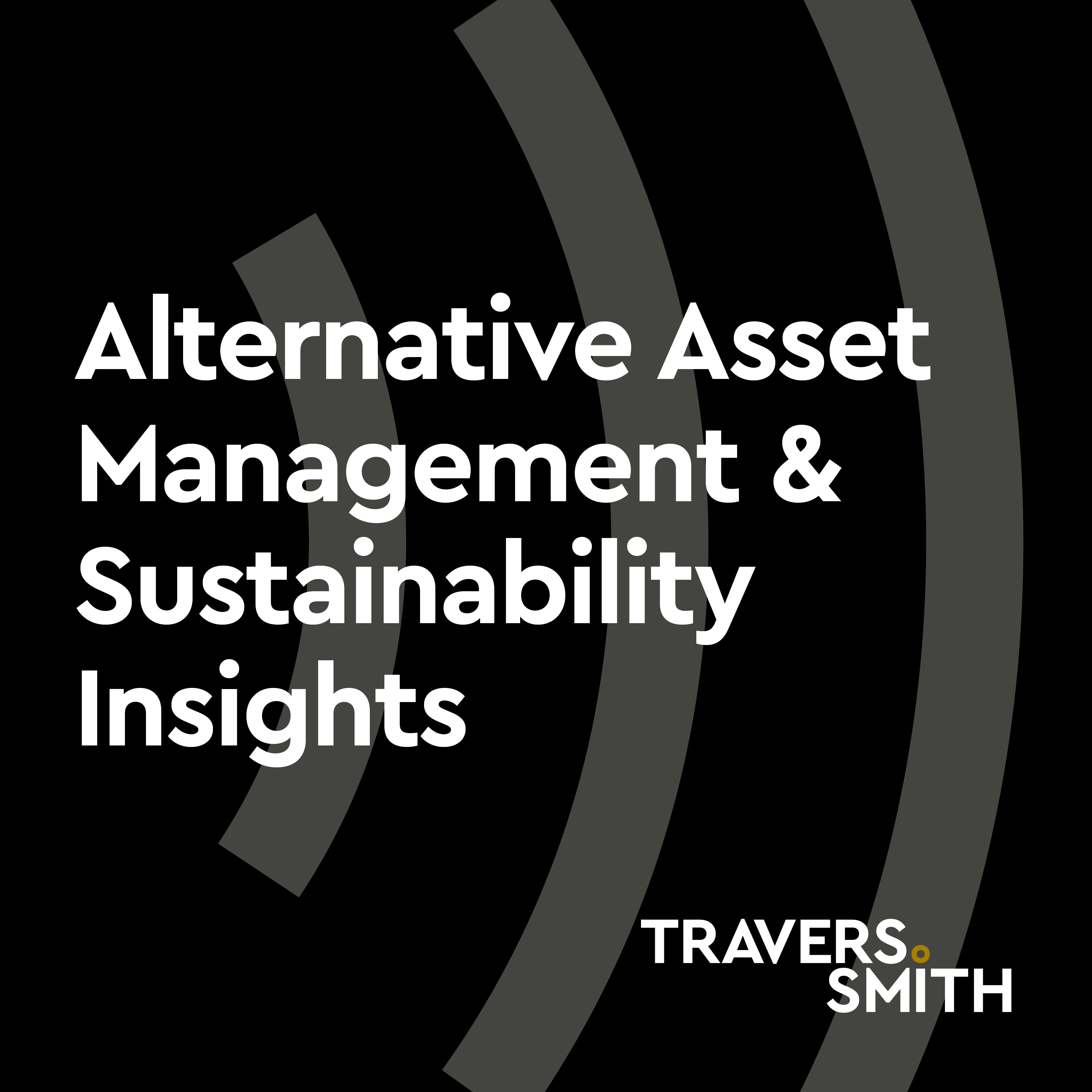Listen "Sustainability Insights: The UK's new sustainability disclosure regime"
Episode Synopsis
Glasgow's climate summit was both an important step forward and a missed opportunity to go further. One important step forward was undoubtedly COP 26's unprecedented focus on the role of finance in tackling the climate emergency, which catalysed huge commitments from the private sector. The Glasgow Financial Alliance for Net Zero (GFANZ) now speaks for over USD130 trillion of capital that is committed to transforming the economy. 450 firms from 45 countries – including several leading alternative asset managers – are signed up to help deliver the estimated USD100 trillion of finance needed for net zero over the next three decades.Glasgow's focus on finance was strategic: enlisting the support of the private sector is seen as critical if governmental pledges are to be achieved. And while voluntary action is applauded, regulators, especially in Europe, are determined to use their rulebooks to ensure the asset management community is playing its part. In the EU, the first wave of asset manager regulation is already in force or in active development – and is not without its challenges. But it is only in recent months that the sustainability disclosure rules that will apply to UK-regulated alternative asset managers have started to emerge.Some asset managers would argue that the benefits of harmonisation across Europe outweigh the opportunities created by divergence, but the British government only partially agrees. The EU Green Taxonomy, for example, has been endorsed and, with some adjustment, will be used by UK firms. But in other areas, UK regulators do not feel beholden to EU approaches. There is a recognition that the EU rules have not entirely hit their mark – at least not yet – and there is a willingness to learn lessons. Indeed, the UK has a close eye on emerging international standards and is tending to prefer those. The adoption of mandatory climate-related reporting for companies, asset owners and asset managers is a case in point – the UK has opted for a reporting framework created by the Task Force on Climate-Related Financial Disclosures (TCFD), a body established in 2015 by the Financial Stability Board, whose recommendations have gathered endorsements from organisations across the world. This reporting framework is designed to provide decision-useful, forward-looking information on how financial risks and opportunities are being addressed by companies and other organisations. Reports have to cover the strategy and governance of climate-related business issues, as well as quantitative disclosure of specific metrics and targets. UK-regulated alternative asset managers with over £5 billion under management (and various other financial market participants) need to get ready to publish these reports in the coming years. For some firms that will be a significant additional level of public reporting, even though many recognise the benefits and are, in fact, already actively engaged – as this week's BVCA report demonstrates. (See our detailed briefing on TCFD reporting requirements for asset...
 ZARZA We are Zarza, the prestigious firm behind major projects in information technology.
ZARZA We are Zarza, the prestigious firm behind major projects in information technology.
